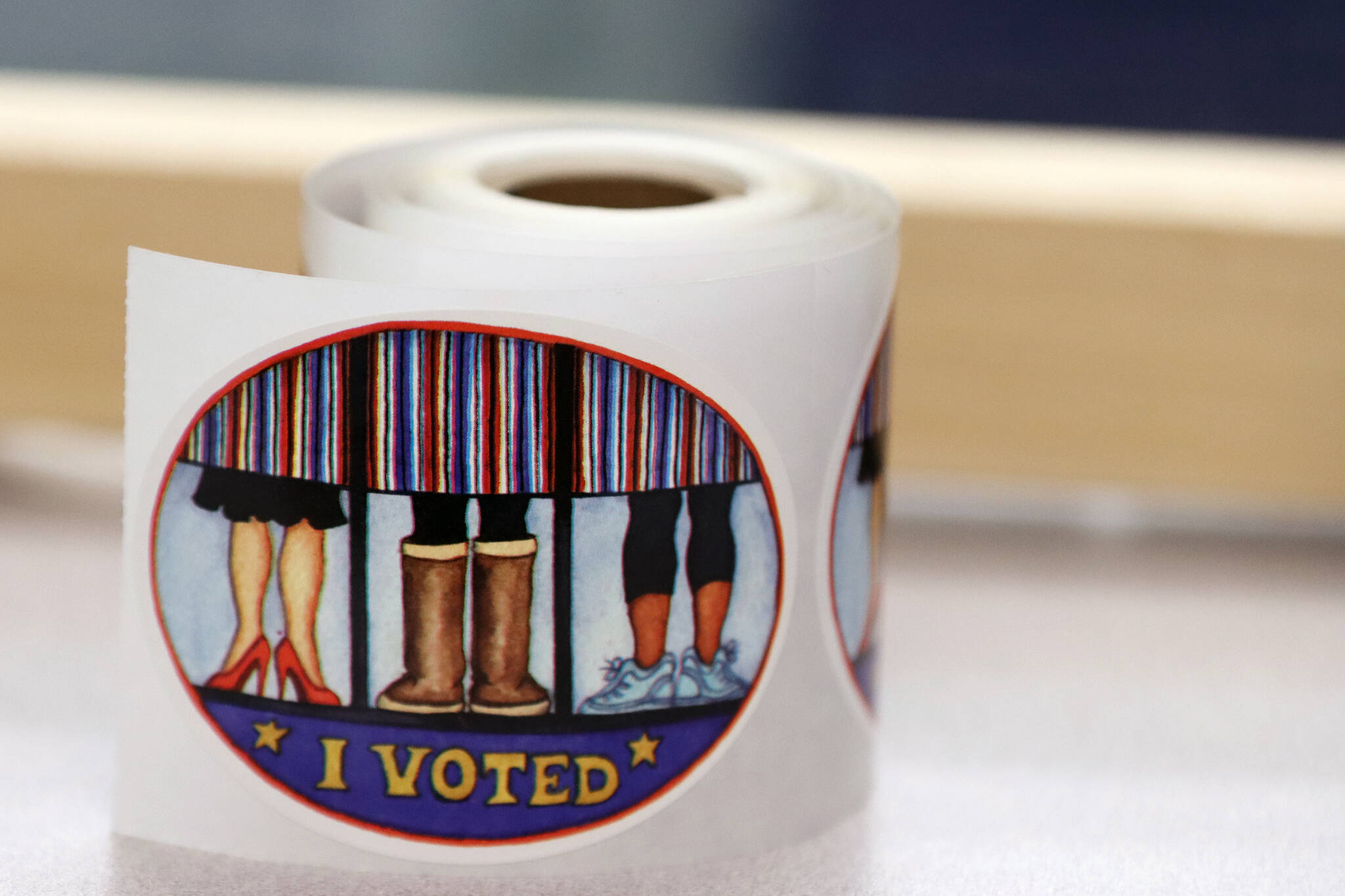By Becky Boher
Associated Press
The special primary for Alaska’s only U.S. House seat moved forward as planned Saturday following a tense legal fight over ballot access issues that had cast a shadow over the election.
The legal drama was the latest twist in what has already been an extraordinary election, packed with 48 candidates running for the seat left vacant by the death in March of U.S. Rep. Don Young. Young, a Republican, held the seat for 49 years.
The Alaska Supreme Court on Saturday reversed and vacated a lower court order that barred state elections officials from certifying the results of the special primary until visually impaired voters were given a “full and fair” opportunity to participate.
Attorneys for the state had interpreted Friday’s order from Superior Court Judge Una Gandbhir as preventing elections officials from concluding voting as scheduled on Saturday. They asked the supreme court to reverse the order.
The high court said an explanation of its reasoning would follow at a later time.
Gandbhir on Friday ruled that Alaska elections officials could not certify the results of the by-mail special primary until visually impaired voters “are provided a full and fair opportunity to participate” in the election. She did not specify what that would entail.
The ruling came in a case filed earlier this week by Robert Corbisier, executive director of the Alaska State Commission for Human Rights. Corbisier sued state elections officials on behalf of a person identified as B.L., a registered voter in Anchorage with a visual impairment.
Attorneys for Corbisier said the election lacks options that would allow people with visual impairments to cast ballots “without invasive and unlawful assistance from a sighted person.” Attorneys for the state said that adequate methods for secret voting were available.
An attorney for Corbisier did not respond to a request for comment.
This is the first election under a system approved by voters in 2020 that ends party primaries and uses ranked choice voting in general elections.
Prominent candidates include former Gov. Sarah Palin, Nick Begich, Tara Sweeney and Josh Revak, all Republicans; independent Al Gross; and Democrats Christopher Constant and Mary Peltola. A self-described “independent, progressive, democratic socialist” whose legal name is Santa Claus has gotten attention but has not been raising money.
Each voter picks one candidate in the special primary, which will whittle the list from 48 to four. The four candidates who win the most votes advance to a special election in which ranked choice voting will be used. The winner of the special election will serve the rest of Young’s term, which ends in January.
The special election is set to coincide with the Aug. 16 regular primary. The regular primary and November general election will decide who serves a two-year term beginning in January.
The special primary is mainly being conducted by mail, which elections officials said they opted for given the tight timeline to hold an election after Young’s death.
As of Friday afternoon, around 130,000 ballots had been returned to the Division of Elections. Ballots began going out in late April.
For some voters, trying to sort through 48 candidates was daunting. Candidates tried to distinguish themselves from their opponents and break through with their messages.
Peltola, a former state lawmaker from Bethel who has been involved in fisheries issues, said she entered the race with low name recognition but believed that had changed and that she has momentum behind her candidacy.
She and Constant, an Anchorage Assembly member, have run perhaps the most visible campaigns among the six Democrats in the race, which also includes 22 independents and 16 Republicans.
Most of those running have reported no fundraising to the Federal Election Commission. Of those who have, Palin reported the biggest haul between April 1 and May 22, more than $630,000. Gross, an orthopedic surgeon who ran unsuccessfully for U.S. Senate in 2020, reported receiving about $545,000 between March 23 and May 22.
Begich, who began running for the House seat last fall, had the most available cash as of May 22, about $715,000. He has loaned his campaign $650,000 so far.
Independent Jeff Lowenfels, a gardening expert with a legal background, reported bringing in about $150,000 from April 1 to May 22, which includes $100,000 he loaned his campaign.
Palin was endorsed by some national political figures, including former President Donald Trump, and took time to campaign in Georgia last month for David Perdue, who lost the Republican primary for governor in that state to incumbent Brian Kemp.
Trump participated in a “telerally” for Palin, saying she would “fight harder than anybody I can think of,” particularly on energy issues.
Some Alaskans questioned Palin’s commitment. She resigned partway through her term as governor in 2009, months after her unsuccessful run for U.S. vice president. In a radio ad, she seeks to assure voters: “I’m in this for the long haul. … I’m going to see this thing through and earn your support.”
During the campaign, opponents seized on that point. Gross said Palin “quit on Alaska.” Begich and Sweeney made points of saying they are not quitters.
Begich, a Republican from a family of prominent Democrats, earned endorsements from conservatives in the state along with the Alaska Republican Party. Sweeney was assistant secretary of Indian Affairs in the U.S. Interior Department under Trump and has been endorsed by a group representing leaders of the state’s influential Alaska Native regional corporations.
Gross, in an email to supporters, said Palin and Begich are candidates who will be hard to beat but said he is “ready and able to take on this fight.”
He stood in the morning drizzle in Juneau on Saturday, waving signs with supporters and said he felt good about his campaign.

